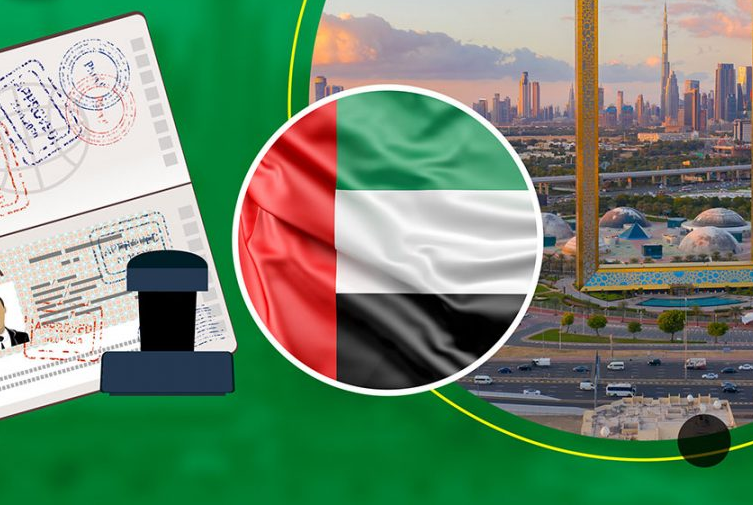Visa Regulations in the UAE: What Every Expat Needs to Know

Visa Regulations in the UAE: What Every Expat Needs to Know
The United Arab Emirates (UAE) is home to millions of expatriates from around the world, making it one of the most diverse countries in terms of foreign nationals. Whether you’re moving for work, education, or business, it’s crucial to understand the country’s visa regulations to stay compliant and make the most of your time in the UAE. In this blog, we’ll walk you through the most common visa options and regulations.
- Types of Visas in the UAE
- The UAE offers several visa options depending on your purpose of stay. Here are the most common ones:
- Employment Visa: If you’re moving to the UAE for work, this is the most common visa. Typically sponsored by your employer, it allows you to live and work in the country for a specific period (usually 2–3 years).
- Residence Visa: If you’re planning to stay in the UAE longer term (whether for work, study, or family reasons), you’ll need a residence visa. This can also be sponsored by your employer or a family member.
- Investor Visa: For entrepreneurs or investors who are willing to invest in businesses or properties in the UAE, this visa provides a way to live and work in the country.
- Tourist Visa: If you’re visiting the UAE for leisure, tourism, or a short stay, a tourist visa typically allows you to remain in the country for up to 30 days.
- Student Visa: If you’re studying at a university or educational institution in the UAE, you can apply for a student visa, usually sponsored by the institution.
- Family Visa: Residents in the UAE can sponsor their immediate family members (spouse, children, and sometimes parents), provided they meet the income and housing requirements set by the government.
- Job Seeker Visa: The UAE has recently introduced the Job Seeker Visa, a flexible option for expatriates who want to come to the UAE and search for work. This visa is valid for up to 60 days and allows job seekers to explore employment opportunities without a prior job offer. The visa does not require a specific employer as a sponsor, making it a unique option for those looking to enter the UAE job market without already being employed.
- Freelancer Visa: For self-employed professionals and independent contractors, the Freelancer Visa is a great choice. This visa allows individuals in certain fields (like media, technology, and creative industries) to work independently in the UAE. Freelancers can sponsor themselves, and they have the flexibility to work with multiple clients without being tied to a single employer. This visa is perfect for those looking for autonomy in their careers and the opportunity to work with various companies or on projects.
- Sponsorship Requirements
- Most visas in the UAE, especially employment, residence, and family visas, require a sponsor. Depending on the visa type, this sponsor could be your employer, educational institution, or even a family member. For instance:
- Employer-Sponsored Visas: If you’re employed in the UAE, your employer will act as your sponsor, handling most of the visa paperwork and ensuring you’re compliant with local laws.
- Family-Sponsored Visas: If you have a valid residence visa, you can sponsor your family members, such as your spouse and children, to live with you in the UAE. However, you must meet specific salary requirements set by the government for sponsorship.
- Freelancer Visa: If you’re applying for a freelancer visa, you’re sponsoring yourself, meaning you’re responsible for managing your visa renewal and legal documentation.
- Job Seeker Visa: The Job Seeker Visa doesn’t require a sponsor but may require applicants to show evidence of their skills and qualifications, which could help during their job search.
- Visa Requirements and Documentation
Each visa type requires certain documentation, but generally, the following documents are required for most visa applications:
Passport: Must be valid for at least six months beyond your intended stay.
Photographs: Passport-sized photographs, meeting UAE specifications.
Medical Certificate: A health check-up, including a blood test and chest X-ray, is required for most visas.
Emirates ID: After your visa is approved, you’ll need to apply for an Emirates ID, which is mandatory for all residents.
Proof of Employment or Income: For employment or family visas, you may need to provide proof of your job offer or income.
- Job Seeker Visa
A relatively new option introduced by the UAE government, the Job Seeker Visa allows individuals to come to the UAE for up to 60 days without having a job lined up. This visa is particularly helpful for those who want to explore the job market in the UAE before committing to a specific employer.
Key points to note:
Duration: The visa is valid for 60 days, giving you time to look for a job or network within the country.
Requirements: You must meet specific qualifications, such as holding a university degree, having a valid passport, and being in good health. The UAE may also request you to demonstrate sufficient funds to support yourself during your job search.
If you find a job during this period, you can convert the visa to an employment visa without having to leave the country. However, if you don’t find a job by the time your visa expires, you must leave the UAE.
- Freelancer Visa
The Freelancer Visa is ideal for self-employed professionals and digital nomads who want to work independently in the UAE. With this visa, you can work for multiple clients or companies without being tied to one employer. It’s available in a variety of sectors, including media, technology, and entertainment.
Key features of the Freelancer Visa:
Self-Sponsorship: You are your own sponsor, meaning you do not need an employer to apply for this visa.
Freelancer Permits: Depending on your field of work, you may need specific permits, which can often be obtained through free zones.
Flexibility: The Freelancer Visa offers flexibility to work on multiple projects or with multiple clients, making it an ideal choice for contractors, consultants, and creatives.
This visa is particularly popular in areas such as Dubai Media City and Dubai Internet City, where many tech and media professionals choose to work. It’s also a great option for remote workers who prefer the UAE’s lifestyle while working for international clients.
- Visa Renewal and Exit/Entry Permits
Visa Renewal: Most visas in the UAE are valid for 2–3 years. You must apply for renewal in advance to avoid overstaying and potential fines. Visa renewals can usually be handled by your employer or sponsor.
Exit and Re-entry Permits: If you’re planning to travel outside the UAE, you may need an exit permit. Some residency holders also need a re-entry permit if they plan to return during their visa’s validity.
- Penalties for Violating Visa Regulations
The UAE has strict rules about overstaying or working without the correct visa. Violations can result in heavy fines, deportation, and being banned from re-entering the country. It’s important to make sure your visa is always valid and renew it in time to avoid penalties.
- Golden Visa and Long-Term Residency
- The Golden Visa is a long-term residency program (valid for 5 to 10 years) that is available to investors, specialized talents, entrepreneurs, and highly skilled professionals. This visa is part of the UAE’s initiative to attract top talent and retain long-term residents who contribute to the country’s economic and cultural development.
Eligible applicants must meet specific criteria, such as making substantial investments or excelling in fields like science, technology, and medicine.
Conclusion
Visa regulations in the UAE can be complex, but understanding the different visa options available, including the Job Seeker Visa and Freelancer Visa, can make the process easier for expatriates. Whether you’re coming to the UAE for work, study, or entrepreneurship, it’s crucial to ensure you have the right visa to avoid penalties and make the most of your time in the country.
By staying informed about the latest changes to visa regulations and working with your sponsor or legal professionals when necessary, you can enjoy a smooth and fulfilling experience as an expat in the UAE.
In summary, the UAE offers a compelling environment for businesses, combining opportunities with robust support systems for growth and innovation.
For Any Queries, Assistance, or Potential Collaborations. We’re Dedicated to Helping You .
Our Services
Work Hours
- 9 AM - 6 PM , Monday - Saturday
Business management consultant in Dubai, United Arab Emirates
